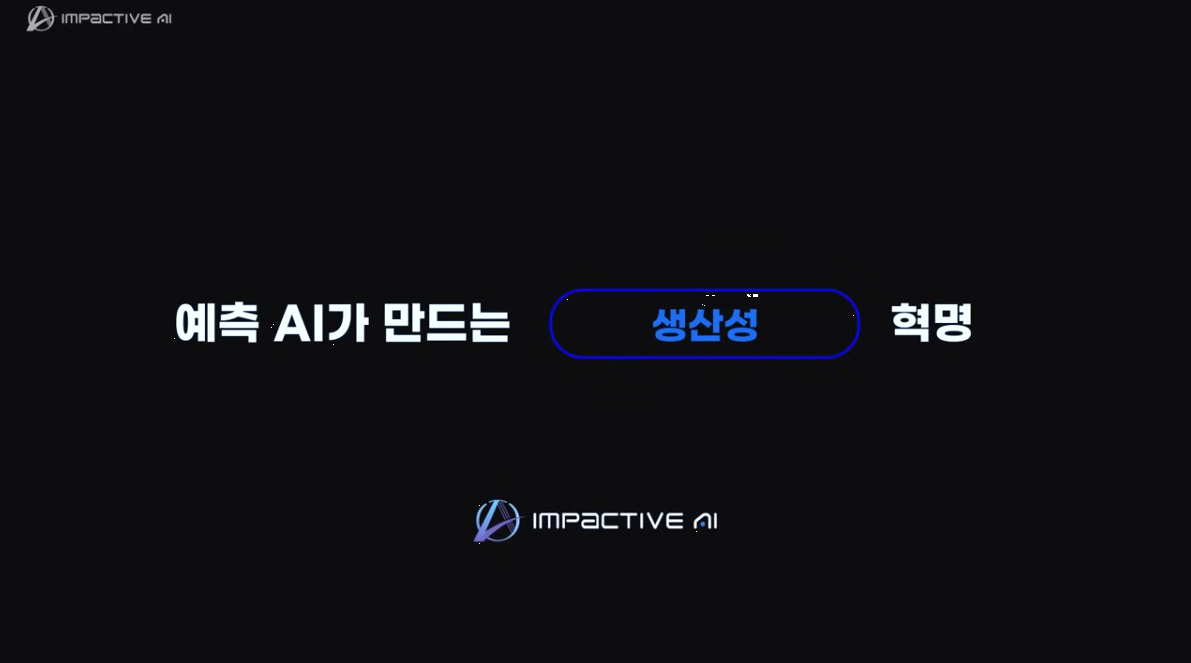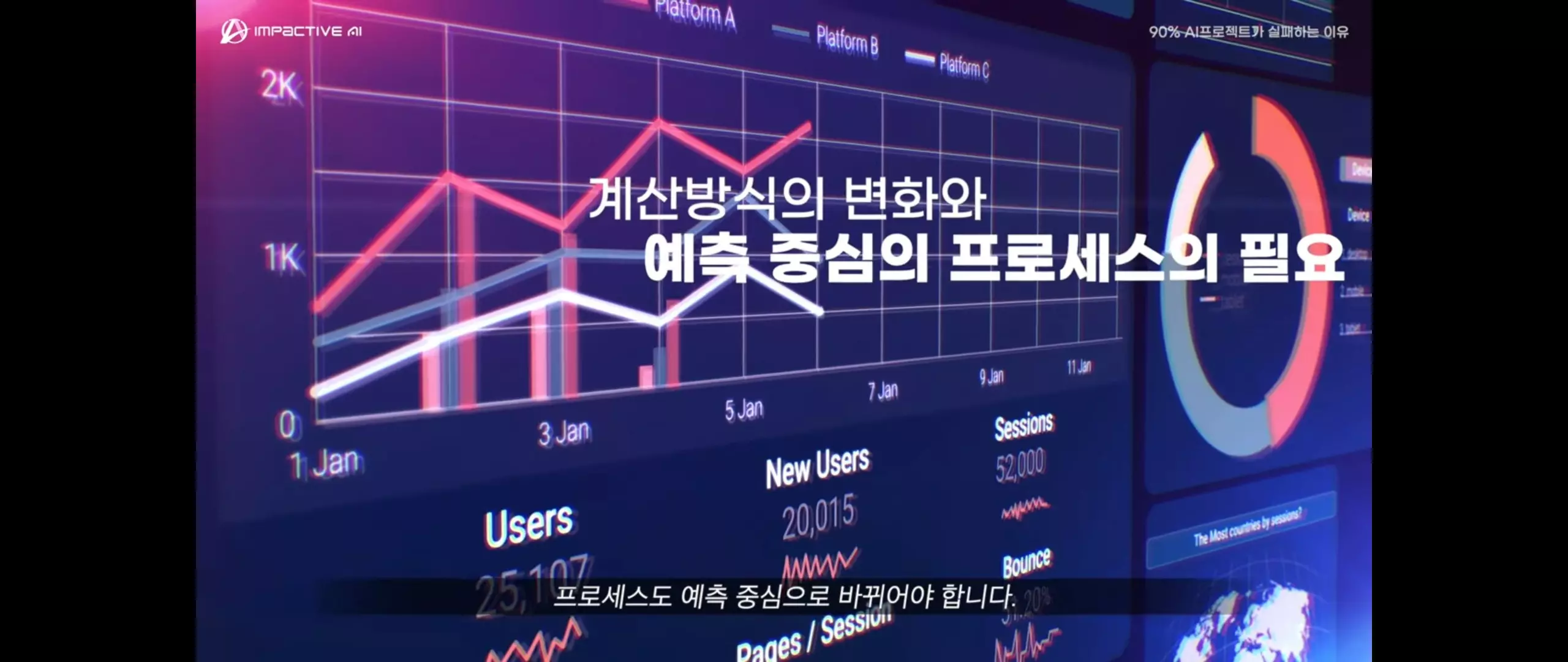Operational innovation of manufacturing companies transformed by predictive analytics systems

Predictive analytics systems are attracting attention as a key driver of operational innovation in modern manufacturing companies. In particular, as the accuracy of predictive analytics has improved dramatically with the advancement of artificial intelligence technology, companies are achieving two goals at the same time: improving productivity and reducing costs.
In fact, the economic loss caused by inefficient inventory management in companies around the world amounts to $1.77 trillion (approximately 2,469 trillion won) per year. The loss caused by insufficient inventory is $1.2 trillion, and the loss caused by excess inventory is $562 billion, which accounts for a significant portion of the overall manufacturing operation cost.
In particular, it was found that various factors are working in combination, including a loss of $418 billion due to supplier issues, a loss of $379 billion due to theft, and a loss of $291 billion due to labor issues.
To address these serious economic losses, the introduction of a predictive analytics system is no longer an option but a necessity.
Against this industrial backdrop, IMPACTIVE AI's AI-based predictive solution 'Deepflow' is presenting innovative solutions. In particular, the success story of Company A, a flavoring manufacturer, is considered a representative example that shows how a predictive analytics system can solve chronic problems in the manufacturing industry.
Industry Status and Challenges

Company A is one of the influential companies in the flavor market. The flavor industry is becoming a key sector of the specialty chemical industry. The size of the flavor market in 2023 is estimated to be between approximately $4.8 billion and $5.8 billion, although there are slight differences in the estimates in various reports.
This industry uses more than 1,500 raw materials worldwide, and the supply and demand of raw materials is sensitive to various external factors such as climate change, international affairs, and exchange rate fluctuations.
According to the International Fragrance Association, the price volatility of major raw materials is 35% on average per year.
As fragrances are key ingredients used in a variety of end products such as food, cosmetics, and household goods, they require strict quality control. Maintaining the freshness of raw materials and proper inventory management are important factors that directly affect product quality.

In this industrial environment, Company A was facing serious operational problems. There were frequent human errors that occurred while managing more than 1,500 items manually, and Excel-based manual management resulted in a lack of data consistency.
In addition, due to the difficulty of optimizing inventory levels, there were repeated problems of overstocking and understocking.
In fact, the company spent an average of 15 days analyzing inventory on a monthly basis, and excessive working hours were spent to establish a purchasing plan.
Repetitive manual work not only led to a waste of manpower, but also increased the inefficiency of inventory management due to the low accuracy of demand forecasting. Decision-making based on experience increased the risk of business operations.
Innovation through the introduction of predictive analysis AI Deepflow
Deepflow solved the problem of Company A through an advanced AI predictive model. It applied a deep learning-based demand prediction algorithm and significantly improved the accuracy of its predictions through multivariate time series analysis.
By building a system that automatically reflects external variables such as market trends and weather, more sophisticated predictions became possible.
We have introduced a real-time data collection and analysis system and built an automated report generation system. We have secured the stability and scalability of the system through a cloud-based, scalable infrastructure.

Since the introduction of Deepflow, Company A has achieved remarkable results. The monthly inventory analysis and purchase plan-making work that used to take 15 days has been reduced to just 7 minutes, saving more than 99.9% of the time.
In addition, the error rate in demand forecasting has been improved by more than 70%, and purchasing decisions can be optimized based on accurate and reliable data.
In particular, automated analysis has significantly reduced working hours, enabling the reduction of human resources and operating costs. In particular, employees can now focus on high-value-added tasks.
Industrial significance and implications
The “Future of Manufacturing 2024” report released by the World Economic Forum (WEF) describes the introduction of AI-based predictive analytics as the most important factor in manufacturing digital transformation. Case A is considered to be a leading example of this industry trend.
The transition to data-driven decision making has led to the innovation of corporate culture beyond the improvement of simple work processes. The establishment of a preventive inventory management system has enabled sustainable supply chain management.
In particular, reducing resource waste through inventory optimization and reducing energy consumption through operational efficiency are of great significance in terms of ESG management. By contributing to the establishment of an eco-friendly supply chain, we are also helping to fulfill our corporate social responsibility.
IMPACTIVE AI is working hard to develop more advanced technology based on the success of Deepflow. We are developing advanced machine learning algorithms and building real-time adaptive prediction models.
In addition, we are expanding its application to various manufacturing industries, accelerating our entry into the global market, and working to develop customizable solutions that meet the characteristics of each company.
Conclusion: Maximize the work efficiency of manufacturing companies through predictive analytics AI
The case of Company A has proven that AI technology can successfully solve the chronic problems of the manufacturing industry. Innovation through Deepflow has become a key driver of digital transformation and sustainable growth for companies, going beyond simple work efficiency.
IMPACTIVE AI plans to build on these success stories to help more companies strengthen their competitiveness and achieve industrial innovation through AI technology. This will be a meaningful step that goes beyond the success of individual companies and leads the digital transformation of the Korean manufacturing industry.


.svg)
%202.svg)
.svg)


.svg)
















.svg)